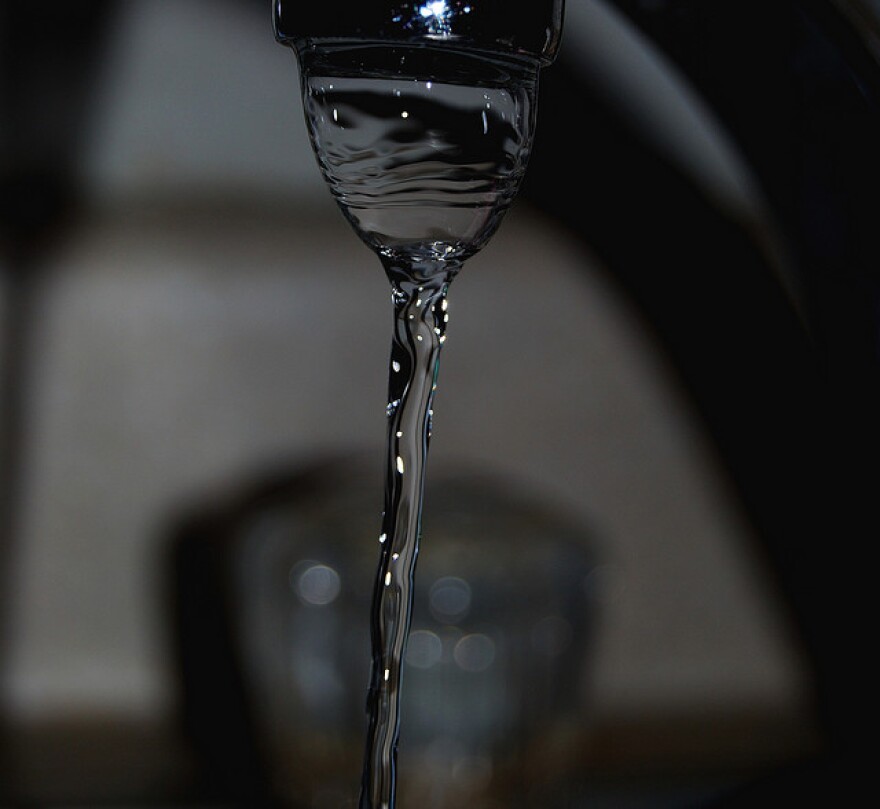There are many theories about water consumption: but are they true? Is carbonated water as healthy as still water? Should you drink more fluids when you have a cold ? This week on WRVO's health and wellness show "Take Care," hosts Lorraine Rapp and Linda Lowen, speak with Dr. Stanley Goldfarb, professor of medicine at the University of Pennsylvania. Goldfarb debunks some of the myths about drinking water in part two of his interview.
Lorraine Rapp: When we’re told by people to drink a certain amount of water or to make sure that you’re at least having water throughout the day, maybe especially in a hot climate, at one time they said caffeinated beverages, like coffee, tea and soda actually canceled that out because it acts as a diuretic. Is there any truth to that?
Dr. Stanley Goldfarb: They’re very, very weak diuretics, if at all. And I think the effect of caffeine can make you feel like you have to urinate a little bit more frequently, but when it’s been carefully assessed the diuretic effects are very, very minimal.
Linda Lowen: I remember growing up as a kid, two situations in which I’ve been told to push water. You have a cold and you’re told to drink plenty of fluids. I don’t know, maybe I think to myself ‘that will move the mucous along.’ Or we’re going to get a blood test and we get the idea that if we drink a little bit more water it will be easier to extract blood from our veins.
Goldfarb: In a hot environment, or when the body temperature is elevated, such as might occur when someone has a cold, loss of water through the skin is accelerated. So, it’s true that individuals who have fever will tend to have more water loss through their skin than individuals who have a normal body temperature. But does drinking loss of water improve mucous flow? It’s unlikely. It’s not really ever been carefully looked at but it’s quite unlikely. And in terms of drinking water in order to have your blood drawn more effectively, that’s just wrong. That’s not true.
Linda Lowen: Is it possible to drink too much water? And what can happen if you drink too much water?
Goldfarb: Well, unfortunately it is possible. And there are several circumstances in which that’s happened. I think perhaps your listeners were aware of this poor child that was forced to drink water as a punishment by her parents and died from it. So, if one drinks too much water and drinks it too rapidly, you can overcome the ability of the kidneys to excrete water, which is quite robust, but it is finite. The condition that occurs is called hyponatremia, which means a low level of sodium in the blood. And the reason the sodium level in the blood falls is because it’s diluted by all this extra water that’s being ingested. So the answer is yes, you can hurt yourself, but you have to really drink lots of water very rapidly under very unusual circumstances, like marathon running, before this becomes a real issue.
Lorraine Rapp: For people who are trying to consume a minimum amount of water throughout the day, they’ve tried to make it a little more interesting by adding flavor to their water, or even having carbonation, carbonated water. Is fizzy water equally as hydrating and as good for the body as still water?
Goldfarb: Yes. In terms of the fluid content, it’s all the same. But drinking it as coffee or tea or sodas or fruit juices or water, it’s all the same. And it really doesn’t matter except for the fact that drinking lots of sugar-containing drinks may have adverse effects. There’s water in many foods. So the diet will influence how much water that you’ll need to take in in order to replace those obligate losses.
More of this interview can be heard on Take Care, WRVO's health and wellness show Sunday at 6:30 p.m. Support for this story comes from the Health Foundation for Western and Central New York.




